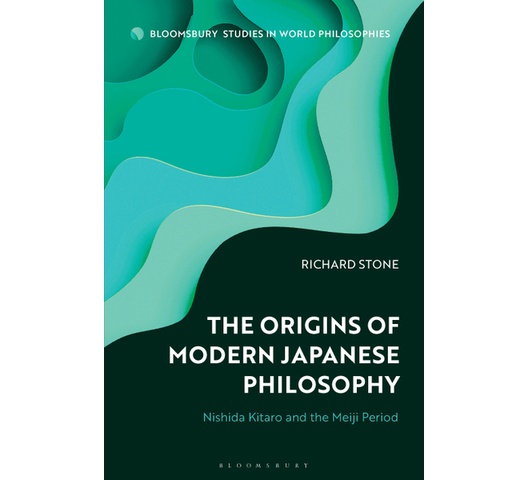
The Origins of Modern Japanese Philosophy
Nishida Kitaro is widely considered as the first original philosopher in modern Japan. Addressing this claim, Richard Stone critically examines Nishida's relation to his contemporary philosophers in the Meiji era (1868-1912), highlighting the continuity, difference and relationships between them.
Stone reassesses the notion that Nishida's An Inquiry into the Good (1911) was substantially more philosophically worthwhile than any preceding attempts at philosophy in Japan, whilst demonstrating how his early ideas were heavily influenced by the work of thinkers such as Inoue Enryo, Onishi Hajime and Miyake Setsurei. He argues that original philosophy in Japan did not suddenly start with Nishida. Instead, it developed within a process of methodological refinement, wherein ideas starting from early Meiji philosophers were gradually given more rigorous treatment over the course of the era, eventually culminating in Nishida's early philosophy.
Providing an in-depth analysis of Nishida's work that brings it into dialogue with his predecessors, The Origins of Modern Japanese Philosophy offers both an engaging insight into the Meiji Period as the background of Nishida's philosophical formation and also a clear account of how several core themes in modern Japanese philosophy evolved over the course of an era.
Stone reassesses the notion that Nishida's An Inquiry into the Good (1911) was substantially more philosophically worthwhile than any preceding attempts at philosophy in Japan, whilst demonstrating how his early ideas were heavily influenced by the work of thinkers such as Inoue Enryo, Onishi Hajime and Miyake Setsurei. He argues that original philosophy in Japan did not suddenly start with Nishida. Instead, it developed within a process of methodological refinement, wherein ideas starting from early Meiji philosophers were gradually given more rigorous treatment over the course of the era, eventually culminating in Nishida's early philosophy.
Providing an in-depth analysis of Nishida's work that brings it into dialogue with his predecessors, The Origins of Modern Japanese Philosophy offers both an engaging insight into the Meiji Period as the background of Nishida's philosophical formation and also a clear account of how several core themes in modern Japanese philosophy evolved over the course of an era.
KES 15,488

International delivery
Free click & collect
| UPC | 9781350346802 |
|---|---|
| Author | Richard Stone |
| Pages | 200 |
| Language | English |
| Format | |
| Publisher | Bloomsbury Publishing |
| SKU | 9781350346802 |
None

